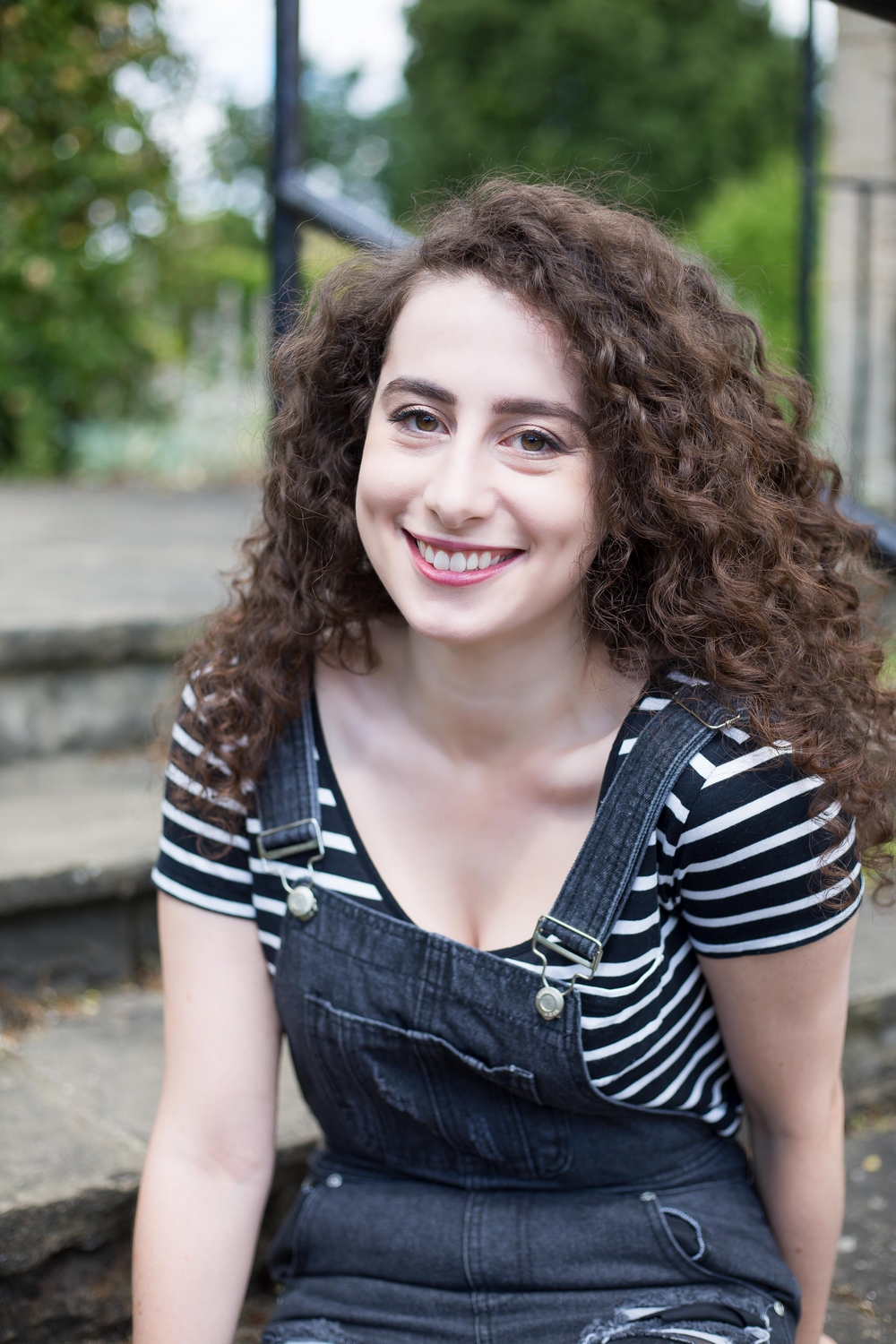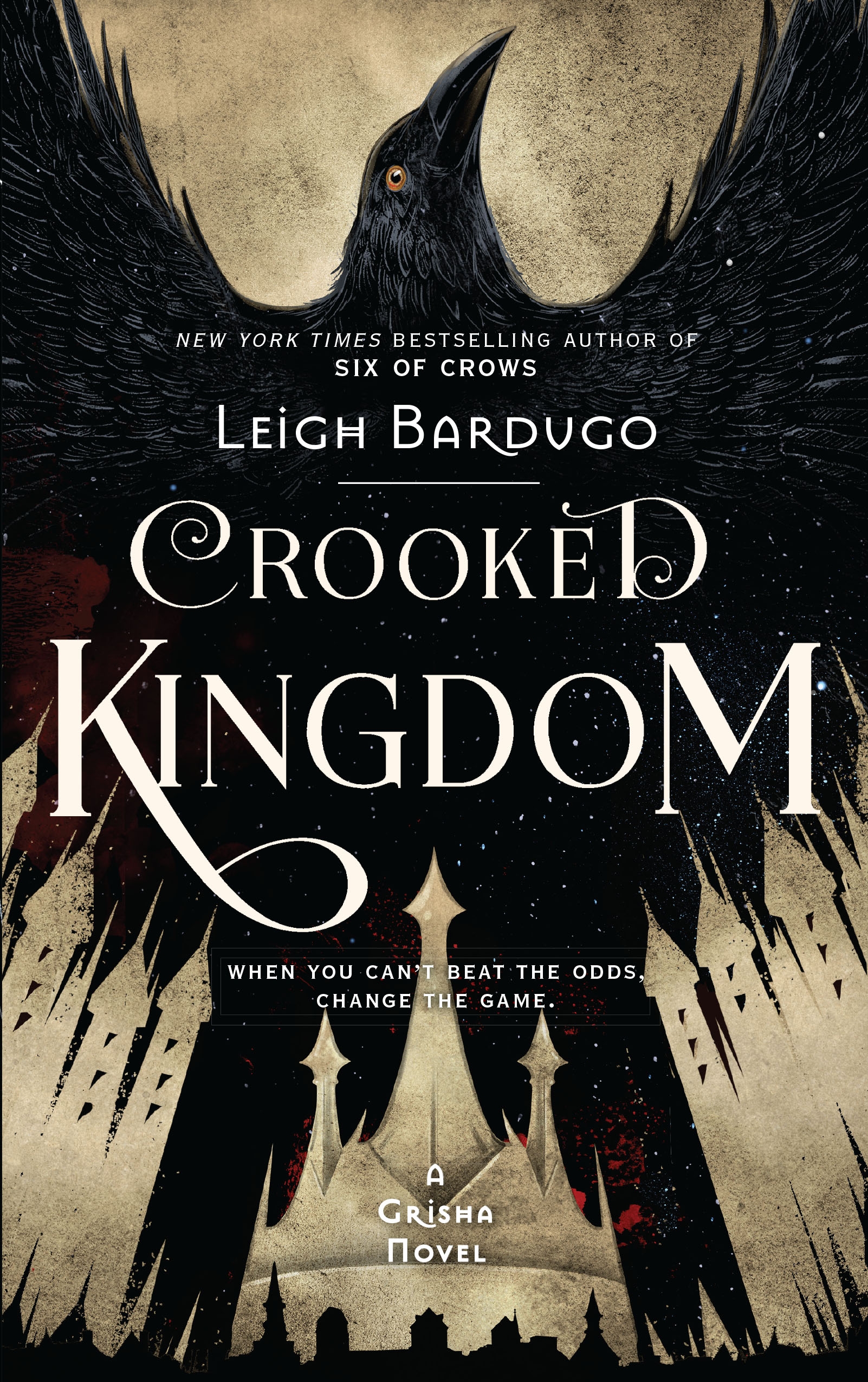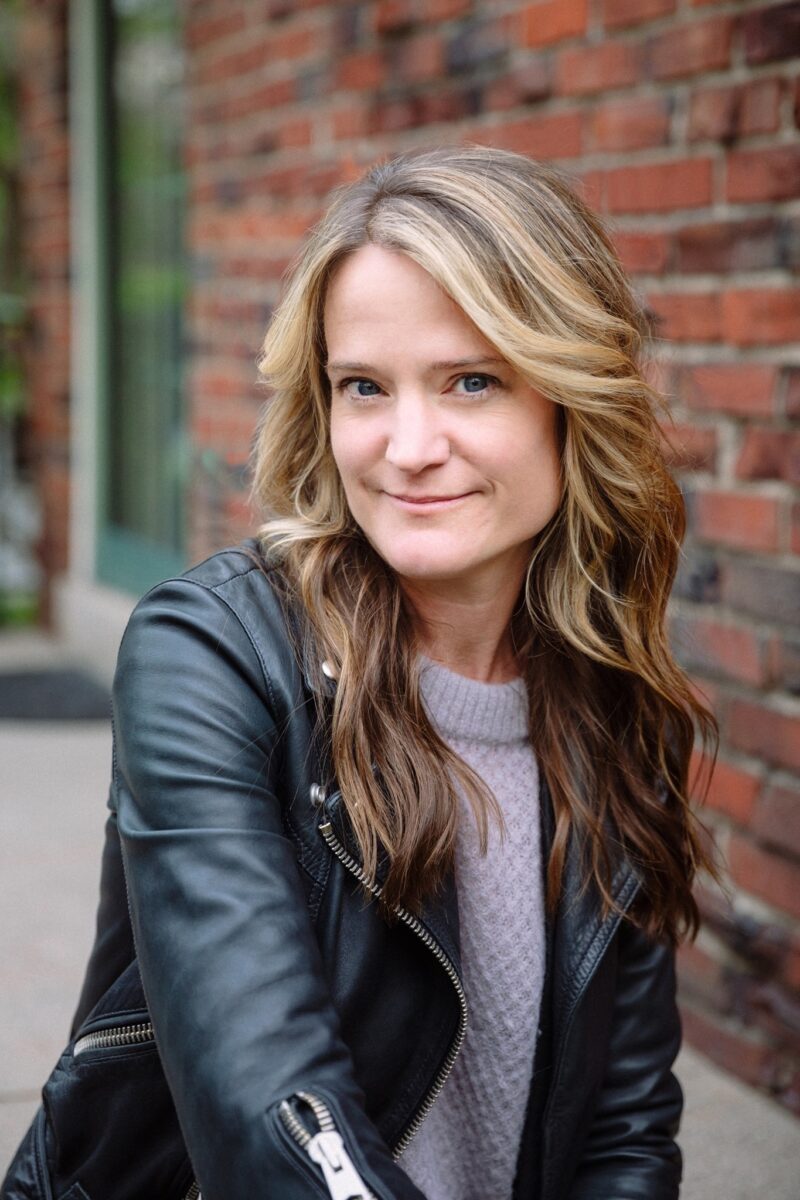Earlier this month at LeakyCon in Orlando, MuggleNet sat down for an interview with bestselling author Rainbow Rowell.
Rowell is the author of Attachments, Eleanor & Park, Fangirl, and most recently, Landline. Her newest novel follows Georgie McCool, a mother and wife who struggles to find balance between her home life and her career as a television writer. Georgie gets an unusual opportunity to reflect on her life and its major points through a magical telephone in her mother’s home.
In our interview, we chat about Landline, her choices in writing, and more. Read below for the full interview:
MuggleNet: I know this is not your first LeakyCon, and I know you’re a Harry Potter fan, so what has this year been like, now that you know the ropes even more?
Rainbow Rowell: It’s really fun. The first time I came to LeakyCon, I came as an attendee, and the thing that I miss now, since I’m here as an author, is I don’t get to go to the programming. I really miss not going to the programming. I went to Wizard Rock last night, so that was awesome. I see everybody else, and they’re like, “Where are you going?!” and I say, “I gotta go to my thing!” I don’t feel like my thing is as exciting as the thing I could be doing somewhere else (laughs).
MN: What has been your favorite moment at this LeakyCon?
RR: My best moment at this LeakyCon has definitely been seeing people cosplaying my characters.
MN: Who did you get to see?!
RR: Yesterday, I saw Cath and Wren from Fangirl. Today I saw Eleanor, and then I saw an extra from Fangirl. She was dressed up like a University of Nebraska student, so that was really clever.
MN: Landline just came out. I have to say – I read it, and it’s already one of my favorite books of the year. Plus, a book with a character named Georgie McCool has to be great. Where did you get the idea for that name?
RR: I always use some sort of gimmick to come up with last names. In every book there’s a theme – it’ll be like towns in Nebraska, or counties in Nebraska, or in Fangirl I did buildings on the University of Nebraska campus. With Landline I did towns, and I’ve worked through a lot of the town names that sound like names already. Then I got to McCool – McCool Junction I think. I think it’s an Irish name, McCool, and then I had Georgie on my name list for a really long time. I wanted to do a character named Georgie. I think because I really like that song “Georgie Girl.”
I liked I, but I worried that it was a little bit too cute of a name. But then I met someone and they said, “Oh, my grandpa’s name is George McCool.” So I thought – see, it could be a real name. I try to only give one character in a book an unusual name because I think when everyone has unusual names their names start to call too much attention to themselves.
MN: The idea for the book – did it start with the phone or did it start with Georgie?
RR: It started with the phone. It actually started with a much worse idea. I had an idea for a sort of romantic comedy where a woman loses her cell phone, because I was thinking about how I use my cell phone to do everything, and if I didn’t have my cell phone I would have to think of different ways of waking myself up in the morning or taking a photo or looking for something or listening to a song. The idea was she loses her cell phone and she finds herself having to find different ways of doing things, and then she meets a guy.
In talking to my literary agent about that, as I was saying to him, “Or, what if it’s a magic phone?” Then it just turned into she finds a magic phone. And I don’t know where the rest of the idea came from. I know a lot of it is stuff I’m dealing with right now in my own life – my husband is a stay-at-home dad, I have two kids – so, part of it was the angst as a married person, and someone who is trying to balance a career with a family.
MN: Who was your favorite character to write, and which character surprised you the most while you were writing?
RR: My favorite character to write was Seth, who is Georgie’s writing partner. He and Georgie have a really great relationship, and he’s interesting because he’s not a guy you want to date. He’s really not a good boyfriend. But he’s actually a really good friend and work partner. So their creative relationship is really good. Even though he’s selfish, he actually is very encouraging and supportive of Georgie, which is sometimes really hard to find. But he is sort of a scoundrel in his dating life, and he’s also very self-centered. His ambition is just out there; he’s very Slytherin in his ambitions. He doesn’t make any apologies for them. But I thought he was a very fun character to write; I thought he had a lot of great lines.
The character who surprised me the most is probably Heather, Georgie’s sister. I wasn’t planning much for that character, and then Heather – in the finished book – is a pretty significant character. She has her own plot line.
MN: I loved the dynamic of Georgie and Seth’s relationship in the book. Toward the end of that book, she questions that relationship as she’s experiencing this phenomenon with the phone. Is that something you’ve experienced in your life, or maybe just shows up a lot – this really close friendship, where you really don’t ever question the intimacy until there’s a sudden moment in which you do?
RR: I think that does happen actually in close friendships, and not just with men and women. It’s not just a hetero thing. I think you have moments in friendships where you’re so intimate and close, and you think, “Oh, I get along better with you than I do with anyone else.” Does that mean that we’re soul mates? Does that mean we’re supposed to be romantic together? Sometimes it’s exactly what you’re saying – it is just a moment, something passes through you, and you either decide you’re going to take it that way. Or, most of the time, I think you see that’s not what it actually is.
I think it is stressful for the same reason that people read Harry Potter and think, well Harry and Hermione get along so well, so they have to pair up. It’s hard for us to accept, especially male-female friendships, that they’re just friendships.
MN: That’s what I really enjoyed – as a male, getting to read this from a female’s point-of-view.
RR: Thank you.
MN: I saw you mention how people ask you a lot about switching between writing YA and adult novels. Can you speak to what that experience is like?
RR: For me, and I think this is different for different authors, I don’t consciously shift between YA and adult. When I’m writing about teens, I’m not writing it in a different way. I don’t have a different process. I don’t have different goals. I’m trying to write a very honest, real story from the point-of-view of a character. What changes is if the character is 16, that character has a very different worldview than if that character is 32 or 37. The character changes, and so the perspective and the thinking of the character changes, but my approach really does not.
MN: How was writing Landline different than writing your previous novels?
RR: This was different because I was writing about a character who is very close to my own age and my own situation. With other books, I may have been looking back to how I felt while I was in college or how I felt when I was in high school, but this was writing from the point-of-view who was kind of my own age and maybe has similar problems. Not the exact same problems, but similar components.
MN: Georgie writes for a TV show. Is that something you’ve ever thought about, like it would be fun to do? Did that make it enjoyable to write about?
RR: It was fun to play with, when I was coming up with her dream TV show. I thought about what would be my dream TV show. I made her good at writing the sort of things I would be good at writing. In doing the research for the book, I found out how grueling the hours can be. I actually gave her hours that are a little more livable than actual TV writers’ hours. I don’t think I would want it (laughs).
MN: What are you working on now?
RR: My job now is I have to go home and write a screenplay for the Eleanor & Park movie.
MN: So exciting!
RR: Really exciting!
MN: I know your readers are so excited that you’re playing a big role in it.
RR: I hope so. They definitely don’t have to keep that screenplay that I write, but at least they’re giving me a shot. Then, I’m revising the first draft of a YA fantasy. Then later this fall or early next year, I’m starting on a graphic novel with Faith Erin Hicks.
MN: That’s a very diverse set of projects!
RR: That’s good for me, to have different things. I’ve had three books come out, boom-boom-boom. I needed to shift, to do something new.
MN: Thanks for talking with us!
Check out our review of Rainbow Rowell’s Landline.
This interview was conducted by MuggleNet Senior Contributing Editor Caleb Graves.




